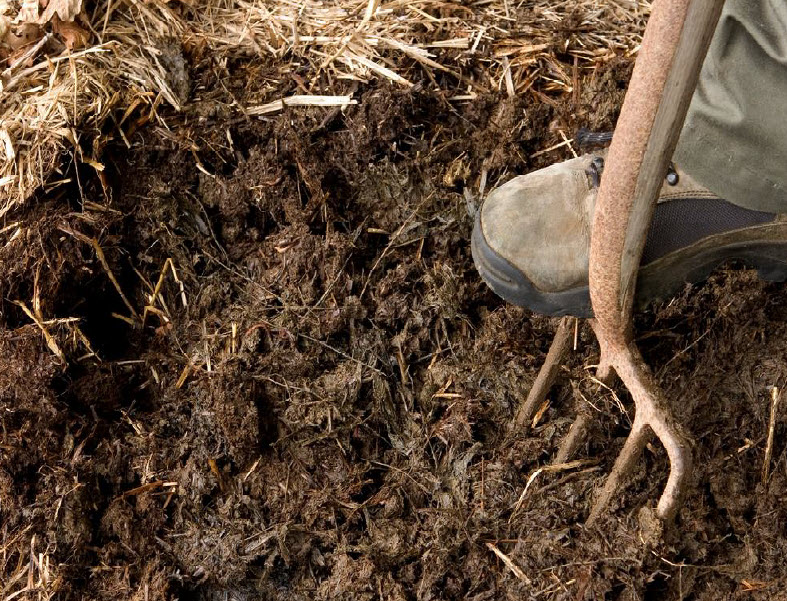Homemade or Purchased?
Composting reduces volume by about 80 percent, so large piles of leaves and kitchen scraps decompose into a compact powerhouse of organic nutrients. So, although homemade compost is of superior quality to a purchased product, few homeowners can generate enough compost from their own wastes to supply their total yard needs. In addition, some homeowners and businesses may choose not to compost on site. In either situation, a commercial product will be needed to increase the water-holding capacity of the landscape.
Unfortunately, the quality of bagged or bulk compost available from garden centers and soil suppliers varies. Commercial products range from rough mixes of soil, wood chips, and relatively fresh animal manures to rich and completely finished composts. The best compost is dark, crumbly, and has a pleasant, earthy odor. There should be no whiff of ammonia in finished compost, and the original materials should not be recognizable.
Use part of the compost demonstration project site to educate consumers on selecting and purchasing high quality organic compost. Develop educational materials and make the information available at the demonstration site, in print, and on the utility’s website. Also, identify areas in the demonstration landscape where compost has been incorporated to highlight its benefits. You may even make samples available for consumers to hone their compost judging skills.
